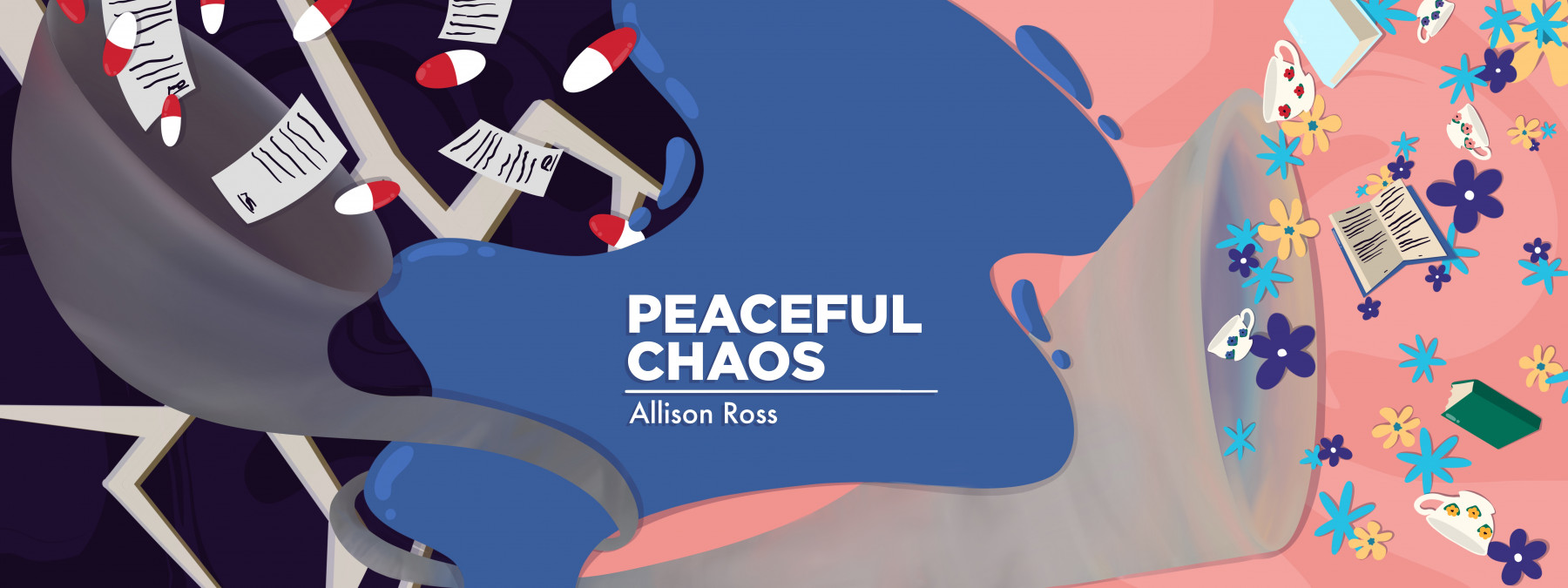‘The Song That Doesn’t End’: Dealing With Life’s Annoying Illnesses
Life with chronic illness is like a song that becomes an earworm you can't shake
Written by |

You know the song. The obnoxious, catchy song that rings in your ears incessantly.
“This is the song that doesn’t end,
Yes, it goes on and on, my friend,
Some people started singing it not knowing what it was,
And they’ll continue singing it forever just because.”
(Repeat ad infinitum.)
Like many other kids of my generation, I was first introduced to this song by puppeteer Shari Lewis’ TV show, “Lamb Chop’s Play-Along,” which aired on PBS in the 1990s. “The Song That Doesn’t End” is an earworm that persists in your head for minutes or hours after you’re no longer actively hearing it.
Making the correlation to chronic diseases is easier than you might think. Diagnosed patients face many unusual challenges — the difficulty of maintaining a normal energy level, for example, or the hardship of battling with insurance companies for the meds we need to stay well. But there’s another aspect of being sick that the rare disease community doesn’t often focus on, which is how irritating these ailments can be.
Even after we’ve stabilized, there’s a pesky voice in the back of our minds that keeps singing the same song:
Am I really doing OK?
Will my disease flare up soon?
How long do I have before this process starts all over again?
As vasculitis patients, we know our bodies don’t just “get over” one episode and then we’re done. It’s a lifelong struggle that never goes away. So what can we do, other than soldier on and hope that we’ll be able to concentrate while taking the final exam next week? Or drive the kids to the big game without getting exhausted? Or celebrate the upcoming holidays without feeling ill?
Many of us “sickies” began our journey as normal, healthy people. Prior to my initial attack, I hadn’t been to the hospital since the day I was born. Multiple lab tests, visits with a team of pulmonologists and nephrologists, a misdiagnosis or two, and a plethora of unfamiliar medications turn our lives from stable to chaotic in a matter of weeks or days.
“Some people started singing it not knowing what it was …”
I’ve had vasculitis for a decade and have gone through two major relapses after the medicine seemed to be working. (The doctors determined that my body wasn’t handling it well due to the elevated protein levels in my urine, indicating kidney inflammation.) Each time was an extensive period of several months of treatment that included induction meds to control the disease activity, as well as two or three maintenance meds to counteract the side effects of the first round of drugs.
And after all of that, there’s still a 50% chance I could relapse again. Even at a young age, this statement struck me less as a medical probability than the doctor’s way of saying, “We have no idea how long this stability is going to last.”
“Yes, it goes on and on, my friend …”
Even when I’m technically in remission, I visit the labs to monitor my blood and protein levels. So when I say I scheduled a visit with my rheumatologist, well-meaning friends and family become alarmed that I’m seeing the doctor yet again. It’s important for me to stress that this is just a routine checkup. Getting blood samples taken is such a “normal” thing for me that the semipermanent purple bruise on the inside of my forearm has become just another colorful part of my anatomy.
When I call the local pharmacy, they know which six drugs are listed under my name. When I call my specialist’s office, the secretary has my medical record number memorized. This sounds far-fetched, but the reality is that we don’t enjoy being so prominent in their files any more than they do. I recall with a somber moment of clarity that the pharmacy is on speed dial above my brother. I want to cringe, but I also recognize the necessity of it.
Sometimes the body fighting its own organs becomes more than an annoyance. Many patients of vasculitis and other chronic disorders search for answers for so many months or years that their body sustains permanent damage — whether from the illness itself or from its toxic treatments. My disease onset was a pulmonary hemorrhage that had me fighting for my life at the age of 16. For others, it can be organ damage, infertility, kidney failure, or a triggering of diabetes. And at that point, there’s no choice but to adjust.
“And they’ll continue singing it forever just because …”
Because why? Because this is how chronic illnesses work. They are repetitive, they are exasperating, and they never really go away. But they are manageable if we have the right tools to fight them and the right attitude to put up with them.
Note: ANCA Vasculitis News is strictly a news and information website about the disease. It does not provide medical advice, diagnosis, or treatment. This content is not intended to be a substitute for professional medical advice, diagnosis, or treatment. Always seek the advice of your physician or other qualified health provider with any questions you may have regarding a medical condition. Never disregard professional medical advice or delay in seeking it because of something you have read on this website. The opinions expressed in this column are not those of ANCA Vasculitis News or its parent company, Bionews, and are intended to spark discussion about issues pertaining to ANCA vasculitis.







Leave a comment
Fill in the required fields to post. Your email address will not be published.